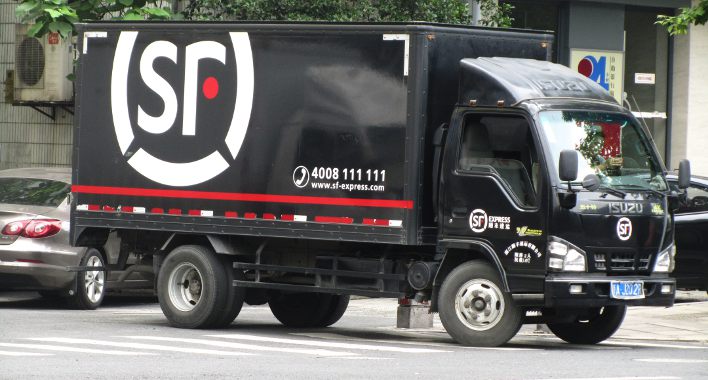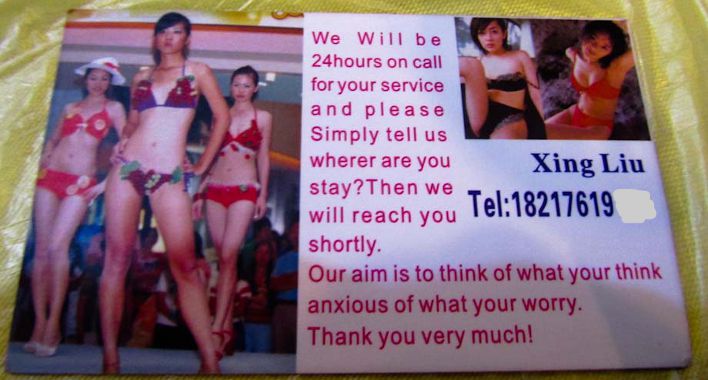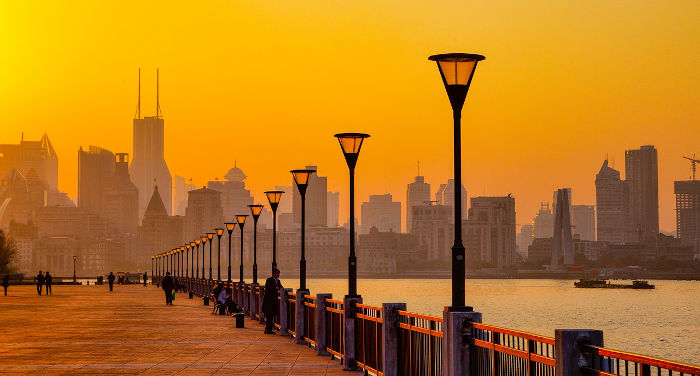
We’ve received and publish this article written by Antonella Moretti, a blogger and writer. Author of the novel “Parsley & Coriander: Life in China with Italian flavour“.
I’ve been living in China for six years, and in my city’s Italian community I’m considered to be a bit of a veteran. In this period of time I passed through all phases of the expat parabola, seen the incredible changes in the city where I live, and I’ve even started to buy things on my own on Taobao and have ordered food from Elema.
But it wasn’t like that in the beginning. If I think of how I was when I arrived in Suzhou the first time…
What advice would I give to someone, who like Maia the protagonist of my book, arrives in China a little vulnerable, young and inexperienced? What are the things not to underestimate when you live in a country like this? Let’s look at it in detail!
1. The cultural differences
It might seem like banal advice, since everyone knows that the Chinese culture is different than the European! But encountering it for the first time can be quite tough.
For example you could get angry when in the middle of a discussion someone laughs in your face. In reality it’s their way of expressing embarrassment. Your exuberance could be quashed by the composure of the Chinese: their sense of humor is very different. Here nobody likes the loud and noisy joking that we enjoy when in a group.
And what about the different importance given to good manners? Spitting noisily on the street isn’t considered impolite; the same with belching during a meal or chewing with your mouth open. What can you do? Really it’s not worth taking it personally if someone cuts in front of you in line or pushes you aside to grab the last open seat on the metro.
Rather it helps to look into the historical and cultural causes at the root of certain behaviors and train your “cultural intelligence” with patience, respect and tolerance.
2. Censorship of the internet
Maia, the protagonist of “The Disquietude of the Dragon”, arrives in China without researching it first and finds herself cut off from the World Wide Web as we know it: the map on her phone doesn’t work, her mail won’t download and even calling her mom on Whatsapp becomes a problem.
The sad reality is that many of the wonderful Apps that we use in the west don’t work in China. So if you want to stay in communication with friends and parents (and use your preferred social networks) the alternative is to install a VPN before arriving in China. Also, creating a WeChat account for yourself (and doing so for those of your family and friends you mainly want to keep in contact with) is a good idea.
3. Your English will not be enough to be understood
Forget your illusions: although the situation is slightly better in large cities, in reality English isn’t widely spoken in China. If you don’t know how to speak Chinese and have no intention (or time) to do so, the alternative is finding a good automatic translator that first of all works in China, and also allows you to translate from photos, phone screenshots and recordings. I personally use Baidu Translator and get along just fine.
4. Your Chinese will not be enough to make yourself understood
Have you studied Chinese in your country for years and think you’ll do just fine? It might not be like that… but don’t be frustrated if, upon getting into your first taxi at the airport to take you to your new Chinese home, you can’t make yourself understood and can’t understand what the driver says to you. It happens more than you might think.
Studying a language from books and putting it into practice in context are two very different things, especially in China where there are hundreds of different dialects and accents. Even the Chinese have a hard time understanding each other when they come from different provinces, and in fact often use characters (it’s not rare for them to draw them in the air with their hands while they speak) to make their meaning clear.
5. The cost of living
Are you convinced that China is a low cost country? Well, it depends! If you need a cappuccino from the bar, pizza and a glass of good wine in order to live, then your money will run out quickly. That’s not even considering rent, which is very high in the major cities. The cost of living is also increasing greatly when it comes to everyday Chinese products.
To really get by on little, you’ll need to adapt to eating “local”, give up imported foods and foreign restaurants, live in outlying areas or share a room with someone and learn to shop online with Taobao, where there are still lots of good deals. If you want an idea of the costs, check this table of prices in the major Chinese cities.
6. The pollution
Sadly this is not a metropolitan legend. Although the situation is improving greatly, there are times when the smog makes everything gray and you can’t even see the building across from you. What can you do? There are various ways to defend yourself against the toxic fog.
To start with, you can use an air purifier in your house so that you can at least have good air quality in your apartment. During days of heavy pollution it’s best not to play sports outside and stay inside as much as possible. If you have to go out, use a mask – one capable of defending against PM 2.5 particles (not all masks are equally effective).
Many foreigners install an App that measures the AQI, Air Quality Index, minute by minute, but be careful that the need to continually check the data doesn’t become a maniacal habit. Otherwise you can try to stop worrying about pollution and enjoy your time in China without obsessively worrying about your health.
7. The “bad China days”
Whether you start off full of enthusiasm or without knowing why you’re doing this, sooner or later you’ll have one of the so-called “bad China days”, those days where you’ll just want to tear your precious Chinese visa into a million pieces and escape. Don’t worry. It happens to everyone. It’s all part of the game.
The experts call this phase of expat life “the frustration”, when the excitement of living abroad starts to wane and you start noticing all those little things that bother you.
The next phase is acceptance: you’ll slowly find your place in the host country and accept the cultural difference without trying to change what you don’t like, without getting mad, knowing that uncomfortable moments will return but that there will be many other exciting ones to come in exchange.
8. The crowd and the mob
If you thought the asparagus festival or Carnival in Venice seemed crowded, be assured that nothing in Europe defined as “crowded” can compare to the rivers of people you’ll find in China.
Getting into the metro in the morning can turn out to be a titanic undertaking, especially when you have to let one train after another pass because not even a sardine could fit inside. If you find a job in a Chinese firm, it’s quite likely that your only vacation days will be the same ones as the other billion and something Chinese workers.
Prepare yourself for crowded trains, sold out tickets, traffic, lines a mile long and seas of crowds. What’s the only option? Arm yourself with the seraphic patience that the Chinese demonstrate when they walk along the Great Wall at a snail’s pace with thousands of their fellow countrymen on vacation.
9. The distances
I’ve arrived late countless times because I’ve underestimated the distances on a map, and I’ve also missed a few trains because I didn’t realize that to get from the entrance to my track I had to gallop for ten minutes. The same thing goes for metro and bus stations: everything here in China is enormous.
Even the “compounds”, the giant condominiums made up of dozens of buildings, are a labyrinth where you can become lost forever. And if you live on the thirtieth floor, keep in mind that it will take time for the elevator to travel the forty seconds that separate you from the ground. The solution? Arm yourself with patience and leave with plenty of time to spare.
10. Health
Everyone will always wish you well, but what if you regrettably get sick in China, or worse still, have an accident? You should absolutely not underestimate the value of health insurance coverage because in China hospital fees can be very high, especially in private clinics where they can communicate in English.
Biography
Antonella Moretti came to Suzhou in 2012 with her husband and children. An ex accountant, since coming to live in the Heavenly Empire she has dedicated herself to her writing. She’s the author of “”Parsley & Coriander: Life in China with Italian flavour“.



